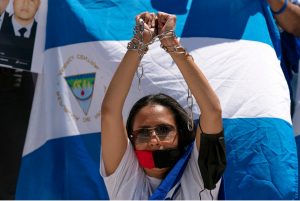By: Rabiya Shamim
Impunity Watch Staff Writer
STRASBOURG, France – On 6 February 2024, the European Court of Human Rights (ECHR) issued a landmark ruling in J.A. and A.A. v Turkey regarding the rights of asylum seekers. The case involves a family seeking asylum in Turkey, fearing persecution and violence if returned to their home country of Iraq.
 |
The applicants, an Iraqi husband and wife with four children, voiced serious concerns over the security situation in Iraq, especially considering that they fled due to ongoing armed conflict, terrorism, and sectarian strife. In support of their claim for international protection, the family highlighted the presence of ISIS (Islamic State of Iraq and the Levant) and the targeted brutality against civilians, especially those perceived to have collaborated with Iraqi security forces.
The ECHR emphasized Article 2 of the Convention, which protects the right to life, as one of the fundamental provisions. Similarly, Article 3 embodies a fundamental principle of the democratic societies forming the Council of Europe. Central to the ECHR’s ruling was the applicant’s claim that their expulsion to Iraq would breach their fundamental rights outlined in Articles 2 and 3 of the Convention, which safeguards the right to life and freedom from torture and inhuman treatment. The Court stressed that these protections are absolute, particularly when people are at genuine risk of persecution or violence upon return to their home country.
The ECHR reviewed the evidence presented by both applicants, and Turkish authorities, acknowledging the complexity of asylum petitions and the difficulties faced by people in substantiating their fears within a short timeframe. The ruling emphasized that states must thoroughly evaluate asylum petitions, particularly in cases where there is a risk of persecution or violence.
Despite the applicants’ diligent efforts to establish the imminent danger they would face in Iraq, the Court found shortcomings in the domestic authorities’ evaluation of their claims. While the Turkish Constitutional Court initially acknowledged the credible basis of the applicants’ fears, subsequent decisions failed to sufficiently address the consequences of the situation in Iraq, especially in the Ninewa region.
The ECHR’s decision reaffirmed the idea that the right to life includes not only protection from immediate harm but also the obligations of states to prevent foreseeable risks to individuals within their jurisdiction. The Court underscored the need to promptly address the plausible threat to the applicants’ safety by granting an interim measure that will prohibit their expulsion until further evaluation.
The ECHR concluded that the applicants’ rights under Articles 2 and 3 of the Convention would be violated if they were deported to Iraq without first undergoing a thorough reassessment of the risks they face. The ruling emphasizes the critical role of international human rights law in safeguarding security and dignity, especially in times of conflict and persecution.
For further information, please see:
Council of Europe – European Convention on Human Rights – 1950
ECHR – CASE OF J.A. AND A.A. v. TÜRKİYE- 09 Jan 2024



